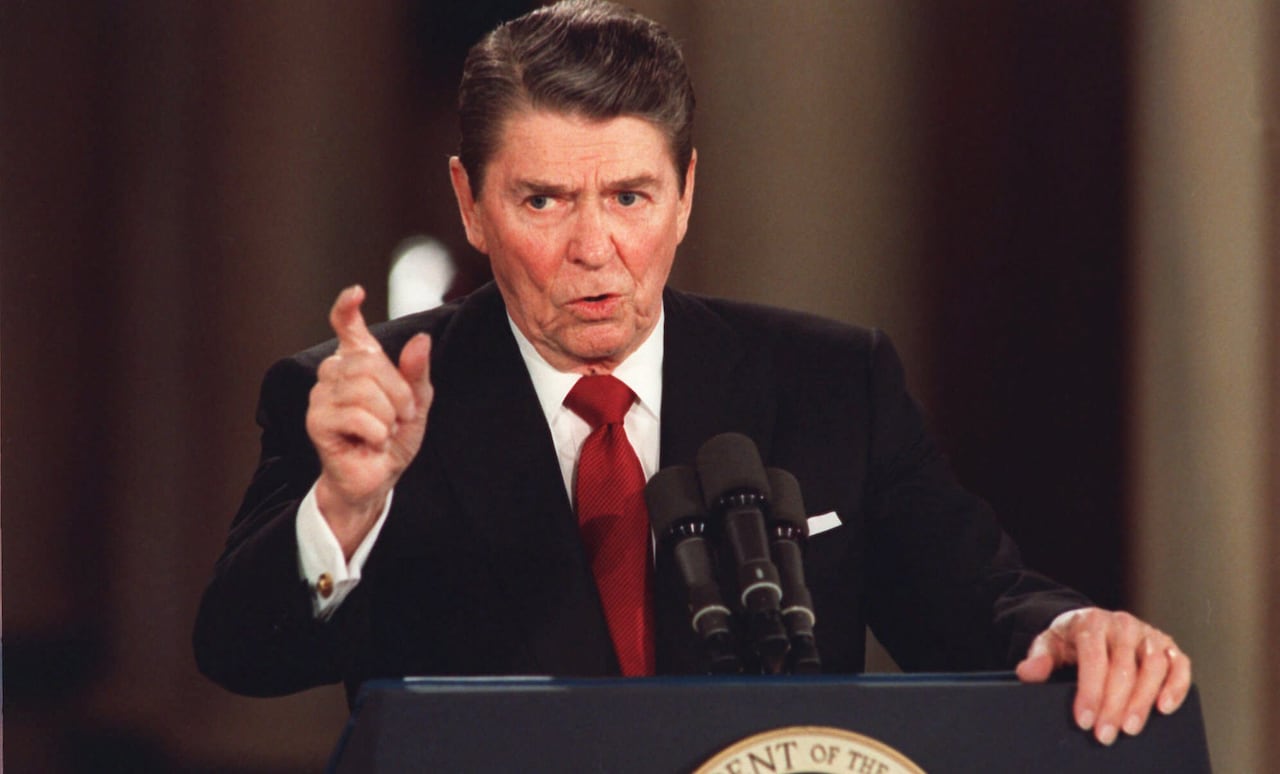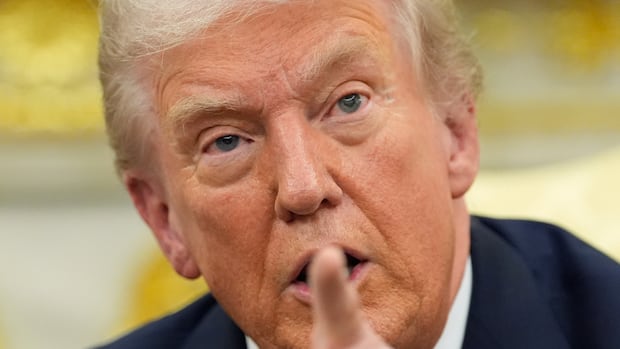As Donald Trump explained it, he was primarily worried about the accurate and honourable reporting of Ronald Reagan’s views on trade policy — and concerned that a misrepresentation of the former U.S. president’s views might somehow influence the justices of the United States Supreme Court.
And his belief in this regard is so strong that he was willing to suspend trade negotiations with one of his country’s closest allies over a television ad.
“Based on their egregious behavior, ALL TRADE NEGOTIATIONS WITH CANADA ARE HEREBY TERMINATED.” Trump announced in a social media post published at 10:30 p.m. ET on Thursday.
Trump had seemed, just 48 hours earlier, to understand why a jurisdiction impacted by his tariffs might produce such an ad.
“If I was Canada I’d take that same ad also,” he said on Tuesday.
But Trump’s new claims were built upon a pretext helpfully supplied by the Ronald Reagan Presidential Foundation and Institute, which claimed, in a statement issued shortly before Trump’s announcement, that the ad produced by the government of Ontario somehow “misrepresents” what the foundation’s namesake said — though the foundation has not yet specified exactly what was misrepresented or how.
U.S. President Donald Trump says he’s terminating all negotiations with Canada, blaming an anti-tariff ad that was broadcast to American audiences. But does Trump’s frustrations go beyond the Ontario government-made ad?
If nothing else, Trump and the Reagan foundation succeeded in ensuring that many more people are now familiar with the message the late president recorded in April 1987 — the New York Times, CNN and the BBC have all now dutifully produced explainers, while the foundation was gracious enough to post a link to the full archival video.
If they were not already familiar, Canadian and American viewers will no doubt come away with a richer understanding of the significant differences between the 40th and 47th presidents.
Indeed, if nothing else, this latest drama is another reminder — as if one was needed — of just how different a world Canada finds itself in and how immense and disorienting the challenge before it now is.
“I think we all cling to a model of behaviour of a president, out of comfort,” Flavio Volpe, president of Automotive Parts Manufacturers’ Association, told CBC News on Friday morning, “and I don’t know what good it does us now.”
There are, Volpe cautioned, “no quick answers.”
Ford declares victory
American complaints about Canadian responses to American actions have been a periodic feature of the last nine months. This is also not the first time Trump has declared a sudden end to trade negotiations because of a grievance he has with the Canadian side.
In that previous episode, Mark Carney’s government agreed to resolve the grievance, abandoning a proposed digital services tax that American tech giants opposed. That at least kept the Americans talking, though three months later there is still no resolution.
U.S. President Donald Trump announced he would be terminating all trade negotiations with Canada after an anti-tariff ad by the Ontario government was broadcast to American audiences. In response, Ontario Premier Doug Ford said he will pull the ad Monday, after it airs during the weekend’s World Series games.
In this week’s episode, Ontario Premier Doug Ford has agreed to conclude the ad campaign, though not before the ads will have run during American broadcasts of the first two games of the World Series.
“We’ve achieved our goal, having reached U.S. audiences at the highest levels,” Ford said, claiming some measure of victory.
Perhaps that will also allow the president to claim victory, but comments from one of Trump’s advisers on Friday suggested that there might be broader American frustrations with the Canadian side. (Depending on the demands being made by the American side, Canadians might not object to intransigence.)
On a broader level, this latest blowup might reinforce the need to keep Team Canada more or less together.

Do consequences still matter?
Ford’s ad campaign was supported by other premiers — before Ontario agreed to end it, Manitoba Premier Wab Kinew released a cheeky video on Friday calling on Ford to keep the ads on the air — and the Carney government hadn’t objected. But Trump’s dramatic response was a reminder of how interconnected all trade issues with the United States now are and how combustible the situation can be.
The blowups will undoubtedly continue, but it will at least be somewhat easier for the Canadian side if everyone is on the same page when they occur.
As always, it is hard to differentiate between spectacle and reality — whether the president was really aggrieved by the television ad or whether the television ad was a convenient proxy for other grievances. But Ontario’s gambit might have always had the potential to leave a mark in a way other moves hadn’t — first because it was broadcast on American television, second because it was aimed at the American voter.
Trump’s fondness for television is well-documented. And American public opinion might still be the greatest source of potential leverage against his tariffs.
The American stock market, which might have been expected to sag under the weight of Trump’s trade agenda, has been propped up by a rush to invest in artificial intelligence. And the New York Times reported on Friday that companies may be starting to pass on more of the extra costs of tariffs to consumers.
It was the consequences of high tariffs that Reagan was warning Americans about in 1987. Perhaps those consequences will still come. And however much has changed — and beyond the presidential theatrics — perhaps consequences still matter.



